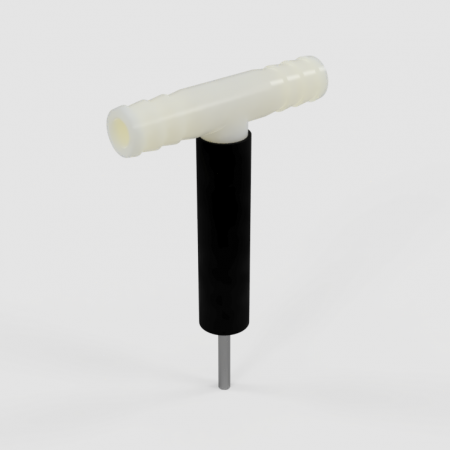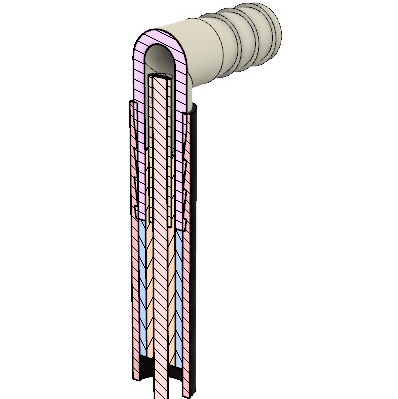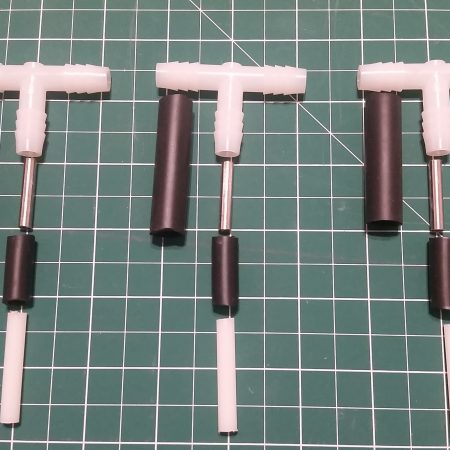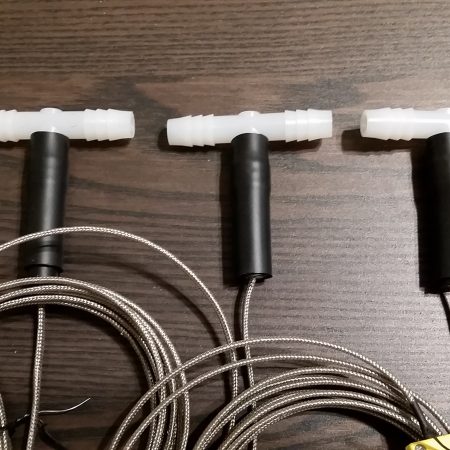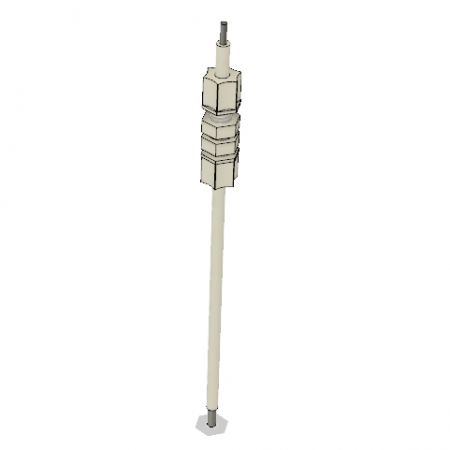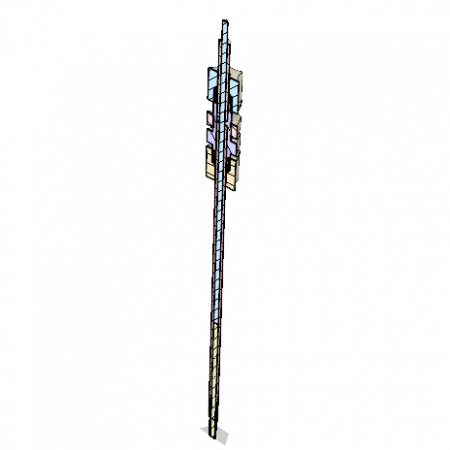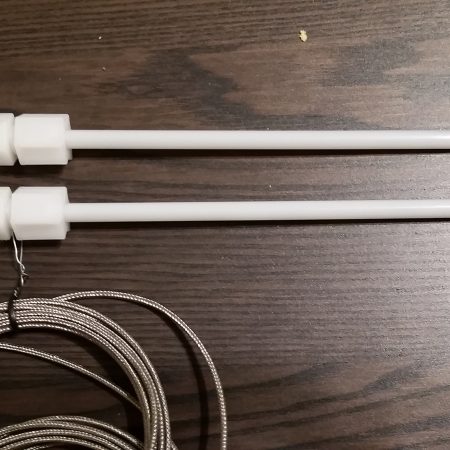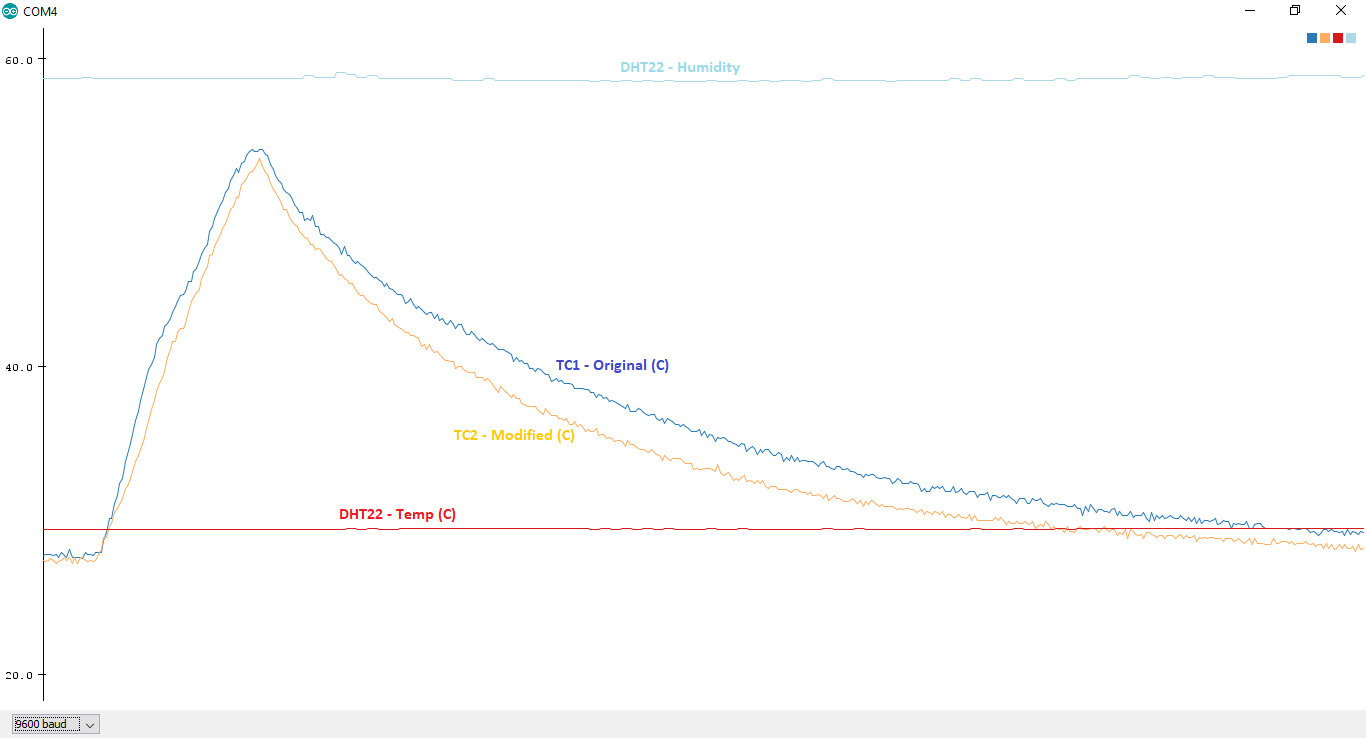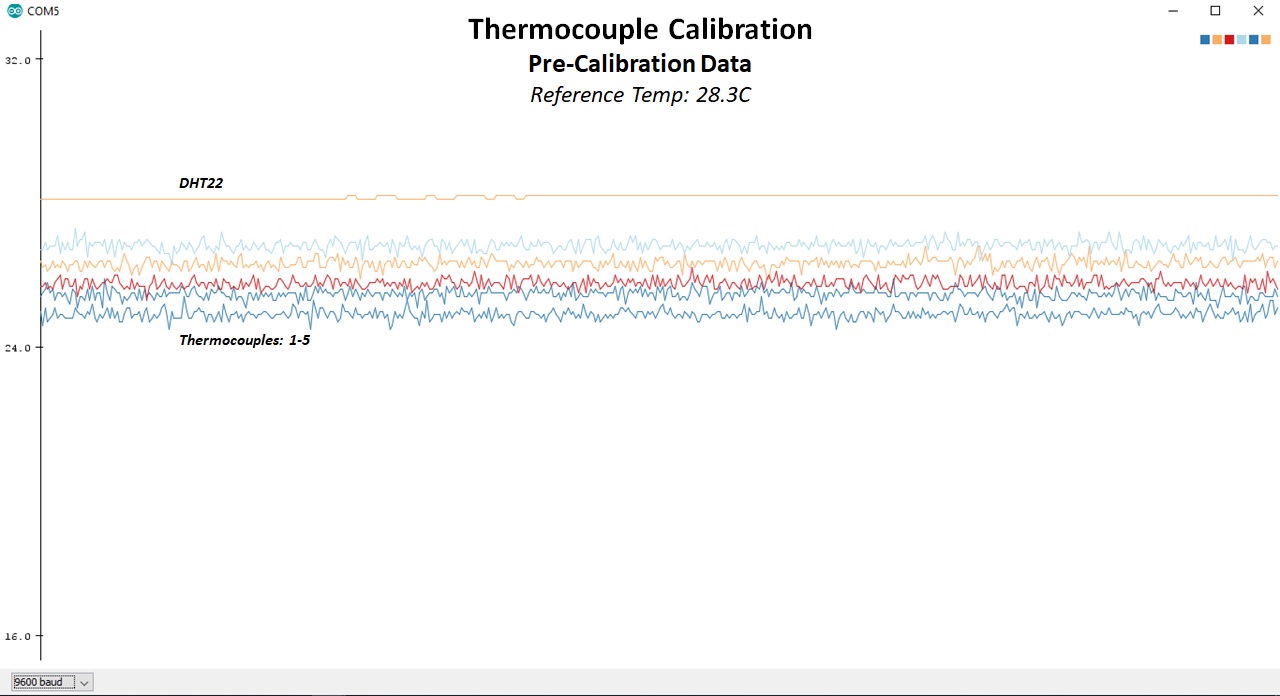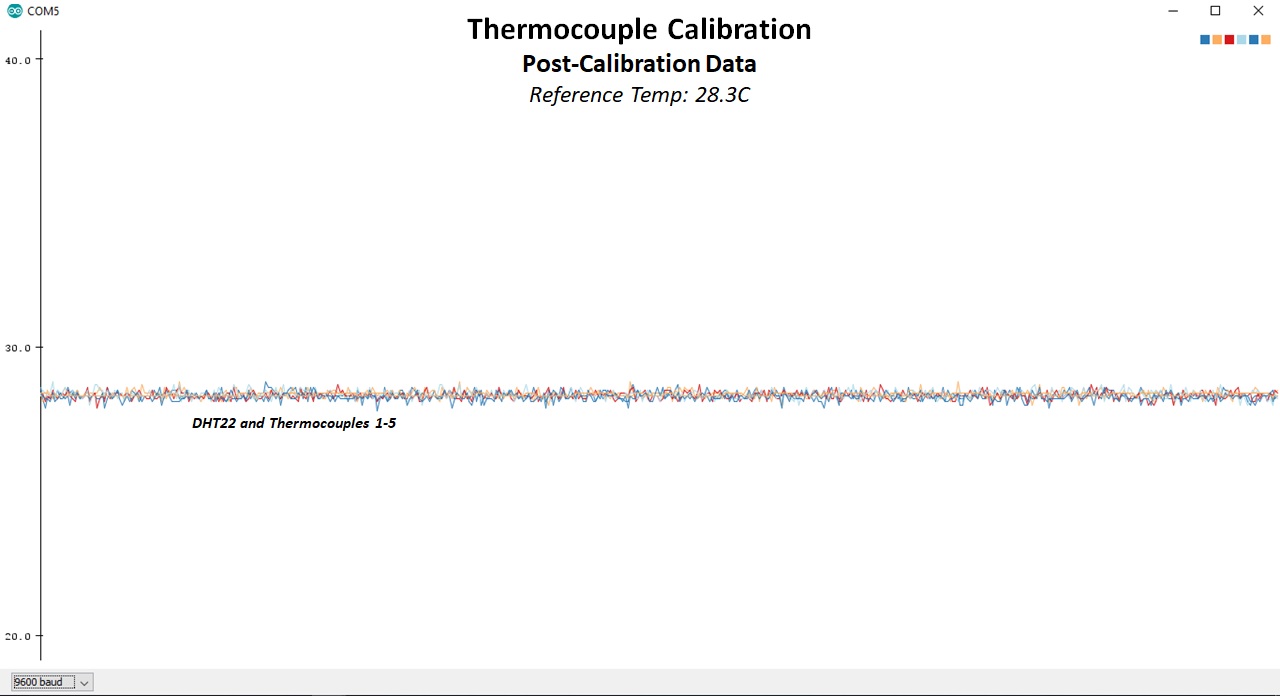UPDATE LOG
- 07/21/2018 – Thermocouples finished.
- 07/23/2018 – Initial thermocouple testing and calibration in air complete.
- 07/24/2018 – Build details officially completed and released.
- 08/20/2018 – Thermocouple operation tested and verified in the cooling loop.
INTRODUCTION
The Closed Loop Peltier Chilled Diffusion Pump Cooling System requires several sensor inputs for monitoring the temperature at several key points in the system. For temperature measurement systems, the thermocouple is a widely used and robust sensor. K-type thermocouples are employed in the design for monitoring coolant as it flows through the system. A total of five thermocouples will be employed in the system: one in the middle of the primary cooling tank, one in the middle of the secondary cooling tank, one before the inlet of the water cooled baffle, one in between the outlet of the water cooled baffle and the cooling line inlet of the diffusion pump, and one at the cooling line outlet of the diffusion pump. This arrangement will allow for monitoring of the thermal gradients of the major liquid cooled components of the high vacuum system, as well as the temperature of the coolant tanks.
Since the thermocouples will be immersed in a primarily water-based coolant, with inhibited propylene glycol additive, the sensors need to be both waterproofed as well as have high corrosion resistance. The original thermocouples were purchased from eBay. Although the description stated the units were stainless steel, a quick corrosion test with a sensor immersed in water revealed rusting after only a few hours. In order to keep the development cost of the system down, the original sensors were modified and rebuilt with high waterproofing and corrosion resistance with minimal additional investment.
Each of the sensors utilize an outer casing made of 0.1875″OD x 0.118″ID x 1″L 316 stainless steel tubing, epoxied in place over the sensors using JB Weld steel reinforced epoxy. The sensors were also made with the thermocouple probe electrically isolated from the case. The original sensor response was qualified against the modified sensor using AD595 cold junction compensated thermocouple amplifiers with an Arduino Mega microcontroller.
As part of the upgrade, thermocouple interfacing to the controller was upgraded. The original fork connectors were replaced with high quality K-type thermocouple connectors, which interface with K-type thermocouple board-mount sockets on the 6-channel amplifier board. Using these adapters between the thermocouples and amplifier chips reduce error from mismatched metals in connecting the thermocouples to the amplifier circuit.
In addition to the rebuild of the thermocouple sensors, adapters were made to fit the thermocouples in the system. Nylon hardware was selected for its very low cost, wide temperature range, chemical compatibility with the coolant, and corrosion resistance. Three of the thermocouple sensors require mounting directly in the flow lines of the cooling system, while the remaining two thermocouples require mounting in the cooling tanks. Nylon hose adapters, nylon bulkhead fittings nylon tubing, and EPDM hose were used for creating low-cost adapters for the thermocouples.
TECHNICAL SPECIFICATIONS
Thermocouples
- Type: K
- Temperature Rating: 0C-260C
- Outer Material: 316L Stainless Steel
- Epoxy: JB Weld
- Electrical Isolation: Isolated Case
- Connectors: OMEGA SMPW Series Miniature Cable Clamp K-Type Connectors
- Calibration: 28.3C, referenced to mercury-filled glass thermometer and DHT22 sensor (+/- 0.2C)
Line Adapters
- Temperature Rating: -40C-150C
- Materials: nylon, EPDM
Tank Adapters
- Temperature Rating: -40C-200C
- Materials: nylon
CAD FILES (.STEP FORMAT)
CAD DRAWINGS
Thermocouples
Line Adapters
- 3/8″ Nylon Tee Barbed Hose Adapter Drawing
- 1/4″ OD x 1/8″ ID x 1.5″ Nylon Tube Housing Adapter Drawing
- 3/8″ OD x 1/4″ ID x 1″ EPDM Section Drawing
- 1/2″ OD x 3/8″ ID x 2″ EPDM Tubing Section Drawing
Tank Adapters
- Jaco 1/4″ Bulkhead Fitting – Assembly Drawing
- 1/4″ OD x 1/8″ ID x 7″ Nylon Tube Housing Adapter – Thermocouple Tank Coupling Drawing
- 1/4″ OD x 1/8″ ID x 1.5″ Nylon Tube Housing Adapter – Tank Adapter Top Drawing

